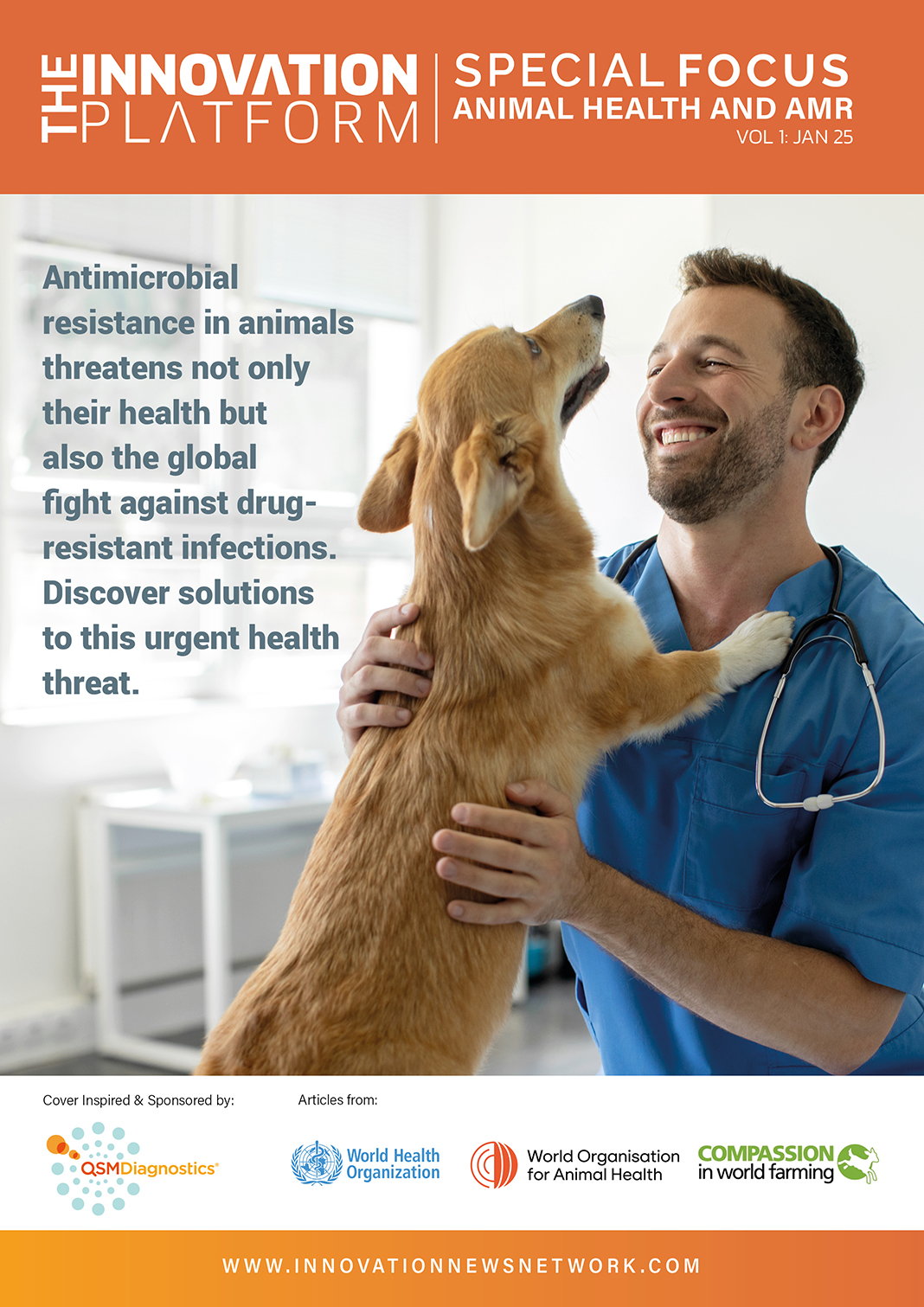Welcome to our AMR and animal health Special Focus Publication, packed with industry-leading perspectives and solutions to tackle antimicrobial resistance in animals.
Antimicrobial resistance (AMR) is one of the gravest challenges facing global health today. While much attention is given to its effects on human medicine, the implications for animal health and welfare are equally profound.
The rise of AMR in animals not only jeopardises veterinary treatment efficacy but also poses significant risks to food security, public health, and ecosystems. Addressing AMR requires a comprehensive ‘One Health’ approach that acknowledges the interconnectedness of human, animal, and environmental health.
This Special Focus Publication aims to illuminate the multifaceted dimensions of AMR in animal populations. Through expert insights and analysis, the articles within explore the origins, impacts, and solutions to this pressing issue. Each contribution provides valuable perspectives on the shared responsibility to combat AMR and highlights actionable strategies to mitigate its effects.
The global perspective on AMR
The World Health Organization (WHO) brings a broader lens to the discussion, exploring how AMR’s drivers transcend national and sectoral boundaries. With a focus on low- and middle-income countries, where the impacts of AMR are disproportionately severe, WHO outlines its collaborative efforts with international organisations to develop sustainable solutions. This article underscores the urgency of coordinated global action to strengthen surveillance, improve access to vaccines, and reduce antimicrobial misuse in all sectors.
A One Health approach
Dr Morgan Jeannin from the World Organisation for Animal Health (WOAH) emphasises the significance of a One Health strategy in combating AMR. Highlighting the economic and societal stakes of AMR, Dr Jeannin provides insights into the global initiatives led by WOAH, including innovative biosecurity standards and the ANIMUSE database for tracking antimicrobial use in animals. This article illustrates how integrated efforts across sectors can significantly reduce AMR’s global burden and safeguard animal health.
Addressing AMR in pets with advanced diagnostics
Later in the publication, QSM Diagnostics Inc. discusses the critical role of diagnostic testing in combating antibiotic resistance among companion animals. With pets increasingly considered family members, their healthcare demands are rising, leading to more frequent antibiotic use. QSM emphasises that improved diagnostic practices can extend the lifespan of existing antibiotics by ensuring their judicious use in veterinary medicine. This article provides valuable insights into how pet owners and veterinarians can collaborate to implement better antibiotic stewardship, safeguarding both animal and human health.
The implications of antibiotic use in farming
This publication concludes with insights from Jane Tredgett, Campaigns Manager at the Alliance to Save Our Antibiotics, who delves into the consequences of routine antibiotic use in intensive livestock farming. This article underscores how mass medication, often employed as a preventive measure, fuels AMR and compromises animal welfare. She advocates for higher welfare farming practices that minimise antibiotic dependence while enhancing transparency in antibiotic usage. You will gain an understanding of the historical context of farm antibiotic use and the critical reforms needed to curb its detrimental impact.
A call to action
The articles in this publication collectively reinforce the urgent need for action to combat antimicrobial resistance in animals. They present a compelling case for rethinking the role of antibiotics in farming, enhancing biosecurity, and fostering global collaboration. Solutions like improved husbandry practices, comprehensive data monitoring, and targeted policy interventions are within reach. However, their implementation demands a unified commitment from governments, industries, and individuals.
As we confront the growing threat of AMR, this publication aims to inspire meaningful dialogue and action. By prioritising animal health within the broader One Health framework, we can not only safeguard the well-being of animals but also protect the health and livelihoods of communities worldwide.


